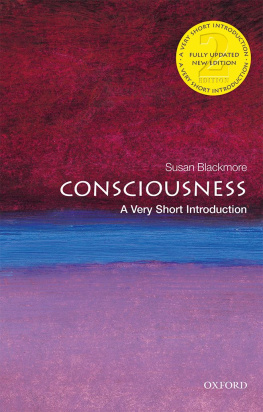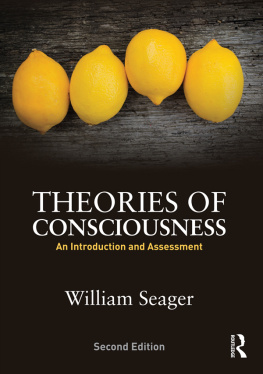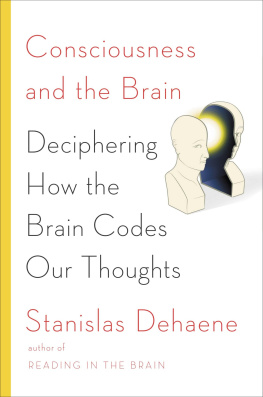Contents
Guide
Page List
i The Oxford Companion to
Philosophy ii
iii The Oxford Companion to
Philosophy
Second Edition
Edited by Ted Honderich

iv 
Great Clarendon Street, Oxford OX2 6DP
Oxford University Press is a department of the University of Oxford.
It furthers the Universitys objective of excellence in research, scholarship,
and education by publishing worldwide in
Oxford New York
Auckland Cape Town Dar es Salaam Hong Kong Karachi
Kuala Lumpur Madrid Melbourne Mexico City Nairobi
New Delhi Shanghai Taipei Toronto
With offices in
Argentina Austria Brazil Chile Czech Republic France Greece
Guatemala Hungary Italy Japan South Korea Poland Portugal
Singapore Switzerland Thailand Turkey Ukraine Vietnam
Oxford is a registered trade mark of Oxford University Press
in the UK and in certain other countries
Published in the United States
by Oxford University Press Inc., New York
Oxford University Press 1995, 2005
The moral rights of the author have been asserted
Database right Oxford University Press (maker)
First edition 1995
New edition 2005
All rights reserved. No part of this publication may be reproduced, stored in a retrieval system, or transmitted, in any form or by any means, without the prior permission in writing of Oxford University Press, or as expressly permitted by law, or under terms agreed with the appropriate reprographics rights organization. Enquiries concerning reproduction outside the scope of the above should be sent to the Rights Department, Oxford University Press, at the address above
You must not circulate this book in any other binding or cover
and you must impose this same condition on any acquirer
British Library Cataloguing in Publication Data
Data available
Library of Congress Cataloging in Publication Data
The Oxford companion to philosophy /edited by Ted Honderich.
Includes bibliographical references and index.
1. PhilosophyEncyclopedias. I. Honderich, Ted.
B51.094 1995 100dc20 9436914
ISBN 0199264791
10 9 8 7 6 5 4 3
Typeset in Dante by
Jayvee, Trivandrum, India
Printed in Great Britain
on acid-free paper by
Biddles Ltd,
Kings Lynn, Norfolk
v To Bee, Ingrid, John, Kiaran, and Rina, with love vi
vii Preface
THE brave, large aim of this book has been to bring philosophy together between two covers better than ever before. That is not a job for one man, or one woman, or a few, or a team, although it is tried often enough. So 249 of us joined forces joined forces ten years ago for the first edition. We have now been reinforced by forty-two more contributors for this second edition. To the 1,932 entries in the first edition, about 300 more have been added. Also, many of the entries in the first edition have been considerably lengthened and revised. Many others have been updated. The list of contemporary philosophers in the first edition has been adjusted in order to reflect what McTaggart denied, that time is real.
The philosophy brought together includes, first of all, the work of the great philosophers. As that term is commonly used, there are perhaps twenty of them. By anyones reckoning, this pantheon of philosophy includes Plato, Aristotle, Aquinas, Hobbes, Descartes, Spinoza, Leibniz, Locke, Berkeley, the blessed Hume, Kant, Hegel, and Nietzsche. These, together with others who stand a bit less solidly in the pantheon, are the subjects of long essays in this book.
Philosophy as this book conceives it, secondly, includes all of its history in the English language, a history mainly of British and American thinkers. In this history there are many figures not so monumental as Locke, Berkeley, and Hume. Among them, if they are not admitted to the pantheon, are John Stuart Mill, Charles Sanders Peirce, Bertrand Russell, and, if an Austrian can be counted in this particular history, and should be, Ludwig Wittgenstein. They also include Jonathan Edwards, Thomas Reid, William James, and F. H. Bradley.
Thirdly, if the book cannot include all of the histories of philosophy in languages other than English, it does attend to them. It attends to more than the great leaders of the philosophies in these languages. Thus Descartes is joined by such of his countrymen and countrywomen as Simone de Beauvoir, Henri Bergson, and Auguste Comte. Kant and Hegel are joined by J. G. Fichte, Jrgen Habermas, Karl Jaspers, and others. There are also general entries on each of the national philosophies, from Australian to Croatian to Japanese to Russian.
A fourth part of the book, not an insignificant one, consists in about 150 entries on contemporary philosophers, the largest groups being American and British. It would have been an omission to leave out contemporaries, and faint-hearted. Philosophy thrives. Its past must not be allowed to exclude its present. It is true, too, that one of these contemporaries may one day stand in the pantheon.
viii What has now been said of four subject-matters within philosophy as the book conceives it can be said differently. These subject-matters can be regarded less in terms of individual thinkers and more in terms of ideas, arguments, theories, doctrines, world-views, schools, movements, and traditions. This contributes to another characterization of the book, more complete and at least as enlightening, perhaps more enlightening. In particular, it brings out more of the great extent to which the book is about contemporary philosophy rather than the subjects history.
There are perhaps a dozen established parts of philosophy: epistemology, metaphysics, moral philosophy, political philosophy, philosophical logic, logic, the philosophy of mind, aesthetics, and so on. In the case of each of these, the book contains a long essay on its history and another on its problems as they now are, by contributors not at all new to them.
In the case of each of these established parts of philosophy, more light is shed by very many additional entriesfor a start, by the aforementioned entries on the great philosophers, on their lesser companions in English-language history and other-language histories, and on contemporaries now carrying on the struggle.
In the case of each of the established parts of philosophy, there are also very many subordinate entries not about individual philosophers. They are quite as important and perhaps take up more of the book. They range from shorter essays down to definitions. To glance at subordinate entries just in the philosophy of mind, the two long essays go with such shorter entries as actions, animalism in personal identity, anomalous monism, body, Brentano, bundle theory of the self, cognitive architecture, cognitive science, and determinism, double-mindedness, dualism, and duck-rabbit. That is but a very small start on the philosophy of mind.
I have now said something of the philosophy which it is the aim of the 2,230 entries of this book to bring into clear view. But whose clear view? The book is for all those who want authoritative enlightenment, judgement by good judges. Thus it is directed partly to general readers for whom philosophy has a fascination greater than, or at least as great as, any other part of our intellectual and cultural existence, and who want accounts of it that they can trust. The book is also directed to those who study and practise the subject, and are scrupulous about their guides. If it did not also have the second aim, it could not have the first. No accounts of a subject can be authoritative for the general reader if they do not also attract and aim to survive the scrutiny of its experts.












